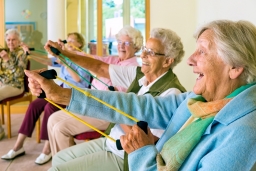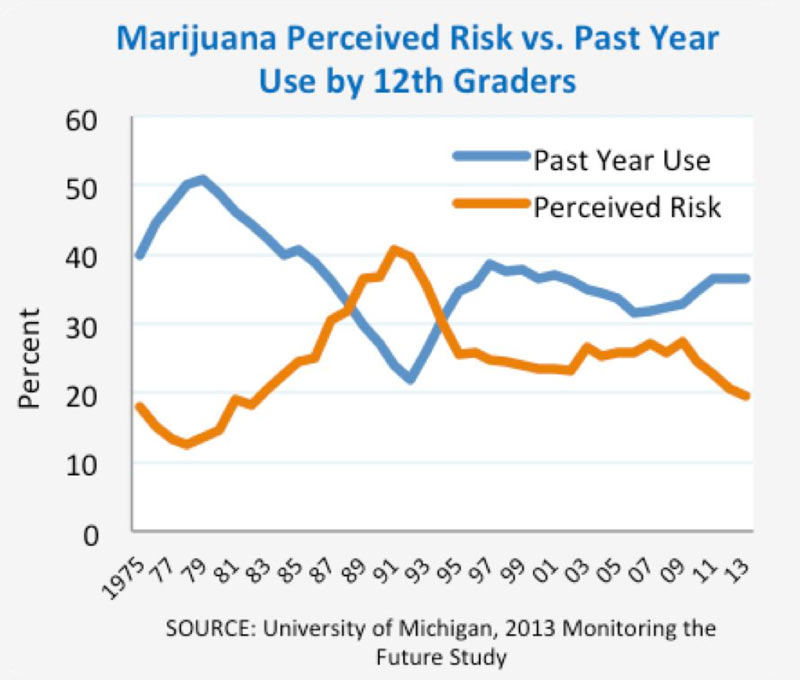Last week, I blogged about how the loss of love in a society always brings a subsequent rise in fear and selfishness, resulting in all kinds of destructive behaviors, including violence.
This week, I want to follow up and describe how applying biblical principles can create an atmosphere in which love can grow and society can heal.
The biblical principles are design laws — the laws upon which reality is built and constructed to operate. Some of these laws have already been realized by many people who have applied them in limited ways. For example, the law of love, being the principle of giving upon which life is based, says that all living things must give in order to live. Some ecologists have recognized this truth and advocate for the preservation of species and habitats in order for the health and benefit of the planet’s environment as a whole. For instance, if we destroy enough plants and trees (such as the great rainforests), the planet’s ability to recycle carbon dioxide into oxygen is diminished, leading to additional ecological problems. Thus, understanding design law can lead to practices in which life and health are sustained.
In a similar way, a healthy government would be one that applied God’s design principles in order to enhance the opportunity for love among its citizens to grow and, thus, for life and its society to flourish. Enabling selfishness, on the other hand, which takes from others without regard for their well-being — exploitation of the environment, etc. — would destroy not only love, but also gravely impair the systems of giving upon which life is built.
I want to emphasize here that no legislation can change hearts, create good character, instill consideration for others into hearts and minds, nor make immature people into mature ones. However, a healthy government can create an atmosphere in which love, health, and happiness are not artificially hindered and in which people are free to pursue these things.
The United States articulated these principles in its Declaration of Independence: a human right to life, liberty, and the pursuit of happiness.
We must “pursue” happiness, because having happiness itself is not a right; however, the pursuit of happiness is our right. This is because happiness is the byproduct of healthiness in all domains — physical, mental, relational, and spiritual. Thus, one of the problems with people’s pursuit of happiness is that not many have understood that happiness is the outgrowth of healthiness. To the degree a person is unhealthy in any domain, their ultimate happiness is undermined. If one chooses to use their freedom to break the laws of health — eat nothing but potato chips, for instance — it is not possible to experience lasting happiness.
Failing to realize this, many people, instead of making choices that harmonize with what is actually healthy, violate the laws of health, substituting pleasure-seeking for happiness, typically leading to further violations of the laws of health. This, in turn, unavoidably results in greater loss of health, and they become less happy.
That’s why it is important for a government to teach its citizens the truth about what is healthy and to create an atmosphere of opportunity for individuals to maximize their autonomy in the pursuit of healthiness in all domains and, thereby, experience happiness. Each of the suggestions below are the applications of godly principles to create opportunity for people to become healthy, including relationally healthy — that is, in how we treat each other. In so doing, society becomes healthier, because the individuals who make up that society become healthier.
Two Principles
John F. Kennedy famously said, “Ask not what your country can do for you; ask what you can do for your country.”
This simple but profound statement advances two principles of God’s kingdom:
- The principle of truth — healthy relationships and societies require healthy people, and healthy people are able to govern themselves. That means we must start with ourselves first! Jesus said, “First take the log out of your own eye, and then you will be able to see clearly to take the speck out of your brother’s eye” (Matthew 7:3 GNB). We must apply God’s principles in our own lives first, before we can make effective changes in the world around us.
- The principle of the law of love — seek to give of yourself to better society, to uplift others, to improve your neighborhood, community, and nation. This isn’t a call for advancing legislation, but for loving your fellow citizens. Jesus said, “Give to others, and God will give to you. Indeed, you will receive a full measure, a generous helping, poured into your hands — all that you can hold. The measure you use for others is the one that God will use for you” (Luke 6:38 GNB). This is the joy of the law of love! The more you give, the more you receive. We are transformed by our beliefs, actions, and conduct: If we love more, we become more loving people; conversely, if we hate more, we become more hateful people.
President Kennedy was advancing the principles of truth and love: Be truthful with oneself, dealing with oneself first, and love something greater than the self. These principles are dying in societies today. Truth is being replaced with opinion: “That is his truth or her truth” (rather than the truth) or with hyperbole or outright lies. We are being told to accept these falsehoods as if they were the reality. People are being conditioned to value deceit and distortion in the pursuit of advancing their interests over the interest of others. As a result, love is dying in our societies.
So, the first change that could be made to create a healing atmosphere is for the message of truth and love to be promoted by our leaders. But, this requires that the people actually want to hear the truth! The apostle Paul warned that many would not want leaders to speak the truth: “A time is coming when people will no longer listen to sound and wholesome teaching. They will follow their own desires and will look for teachers who will tell them whatever their itching ears want to hear. They will reject the truth and chase after myths” (2 Timothy 4:3, 4 NLT). Myths are fantasies, falsehoods, lies — people will want to be told lies and will therefore elect people to tell them what they want to hear.
If we want a healthy society, we must become lovers of truth and be willing to deal with the truth, even if it is an inconvenient truth that gets in the way of our desires. Why? Because we can never avoid the truth; we can only delay the day we deal with it. And the longer we delay dealing with the truth, the worse it will be when we are finally confronted with the reality of it.
Sadly, though, many prefer leaders who will tell them what they want to hear. We will never heal our hearts with lies, and healthy societies require healthy people. The reason we have so many leaders who struggle to speak truth is that the people don’t want to hear the honest truth — they prefer lies and fantasy. Only when we become honest with ourselves and hunger for the truth as a people will we begin electing leaders who speak truthfully to us.
The second principle that could bring health to our country is for leaders to promote, and the people to embrace, an attitude of service — of altruism, of giving to better the nation — promoting the principles of each person giving of themselves for the betterment of their community and nation as a whole.
This was the attitude of the “Greatest Generation” — the generation that endured World War II. With a high value placed on service to the greater good, that generation pulled together in ways we don’t often see today. Those who didn’t serve in the military still embraced the mission by collecting materials for the war effort, buying war bonds, or taking up new jobs to help the cause. The value of service to a greater good was so important to that generation that many young men, who were found physically unfit to join the armed services, often became depressed and suicidal.
Today’s leaders, likewise, need to advance the value of service and stop promoting an entitlement mentality, which teaches that each person is owed something by their government, They need to teach, rather, that each person is valuable to the nation and has abilities to contribute to the greater good. The people must be taught that the nation will invest in you because you are valuable to the health of the nation as you give back to the nation (the law of love in action — and of course we compassionately care for those incapable of contributing or caring for themselves).
Practical Steps
Policies could be implemented that would reward such service, while not compelling it through legislation. I was the recipient of a U.S. Army scholarship; they paid my way to medical school and, in return, I proudly served in the Army for a number of years. Likeminded programs could be developed to link scholarships, or student loan repayment, with service to the country — not just military service, but any service that helps the nation, such as working in clinics in underserved areas, environmental clean-up, infrastructure improvement, or a multiplicity of other activities.
Educational scholarships tied to national service build character, values, and solidify emotional ties to the nation. Moreover, a person’s sense of accomplishment is enhanced, their integrity improves, and as they exercise their abilities, those abilities grow stronger (this is the law of exertion, another design law: If you want something to get stronger, you must exercise it — if you don’t use it, you lose it). So, as people care for others, giving to help promote a larger goal, they exercise their altruistic abilities, which also calms fear emotions. They become better citizens, and society gets healthier as a result.
The application of the principle of truth in our society would require that we also be honest in science and education, which would lead us to teach truthfully the scientific evidence of Creation and the design laws of God that were built into nature.
The perpetual and zealous fraud that is pervasive in scientific circles today promotes the practice of deceit and denies reality. Professors who bring forth scientific evidence that refutes the godless theory of origins are punished by losing grants and research funds, termination from their positions, and basically blackballed in the scientific community. This is wrong.
True science doesn’t live in fear of evidence. Truth has nothing to fear by close investigation; it can stand up to scrutiny. Only lies and falsehood fear close inspection and examination of divergent points of view. This is why the Christianity of the Dark Ages feared science so much, because many of the teachings of the persecuting church of that time were false. It couldn’t stand up to the evidence and, thus, the church used imperial power to punish dissenters.
Yet today, the scientific community is doing the exact same thing. They have a belief system that is being overthrown by the evidence, and instead of embracing the evidence, they use imperial power to punish, ostracize, and silence their critics.
Our educational system is infected with the practice of distorting facts, denying evidence, and teaching people to accept lies as if they were true. Thus, critical reasoning is undermined in generation after generation, which impairs the ability to differentiate between actual evidence and opinion. People tend to rely on some expert to tell them what to think, rather than learning to think for themselves.
But a healthy society doesn’t tell people what to think; it teaches it citizens how to think. We cannot teach critical reasoning if we practice the denial of evidence and punish those who bring forth evidence that contradicts the politically correct view.
To that end, another action that could be taken to improve society is to start teaching an evidence-based understanding of reality. Thus, in schools, evidence would be presented as it is, and different theories would be freely discussed, leading people to form their own conclusions based on that which is most consistent with the evidence. As the Bible teaches, we should allow “every person… to be fully persuaded in their own mind” (Romans 14:5).
This would not be teaching a religion; rather, it would be teaching the science of reality and allowing the evidence to speak for itself. And the evidence is unequivocal in terms of a higher intelligence. Such evidence includes the coded information found in the DNA of all living organisms. No logical explanation exists for how such information came about without an intelligence behind it (in fact, it would be a violation of the second law of thermodynamics for complex information coding to organize itself randomly. And all life requires this coded information). We will not have a healthy society until people are willing to be truthful, and at the very bedrock of our educational system is a deeply rooted lie that corrupts our children, distorting their ability to think critically and accurately.
The Critical Reality of Reasoning
Our goal in education should not be indoctrination into politically correct ideologies, but to teach critical reasoning and let each person be fully persuaded in their own minds. This means we show respect for others who have a different opinion — we leave them free and don’t retaliate against them or seek to silence them.
Foundational to critical reasoning are trustworthy standards to test our ideas and perspectives against. These standards are the eternal, unchanging design laws of God built right into nature. These design laws should be taught to our children, including:
- Laws of physics
- Laws of mathematics
- Laws of health
- Law of love (the circle of giving upon which all life is built)
- Law of liberty (love only grows in the atmosphere of freedom, and violating liberty damages love, incites rebellion, and destroys individuality)
- Law of worship (a.k.a. modeling; we become like what we admire and worship)
- Law of exertion (strength comes from exercise; if you don’t use it, you lose it)
- Law of restoration (after expending a resource, one must rest and recover to have more to expend)
- Law of sowing and reaping
- Law of love overcoming fear
- Law of fear (fear destroys love and incites selfishness)
- Law of truth
Yes, sick societies can become healthy, but only if the people embrace and apply the laws upon which life is built to operate. One cannot have health while in violation of the laws of health; thus, only as we move into harmony as a people, with God’s design laws, will society ever heal.
This means we present truth, in love, and leave others free. We teach reality — truth — because life actually works that way; we promote the values of equality, altruism, service, and the greater good, teaching that each person has the responsibility to govern themselves, to develop their own character, and to practice the principles of health in all they do — because life works that way.
So to this generation, for your health, for life, for love, and for your happiness I resound: “Ask not what your country can do for you; ask what you can do for your country.”








